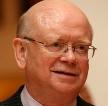When the Constitutional Court decided in June 2020, (correctly in my view), that it was unconstitutional for our electoral system at Parliamentary and Provincial Legislature level to require candidates to belong to political parties, there was great media excitement.
Some wannabee politicians, or ex-politicians, and commentators- mostly those who do not know how elections are run, overheatedly exclaimed that this was a huge step forward for democracy. Some went so far as to say the political parties would have to be careful about staying relevant now that independents would be able to contest elections in two years.
Mmusi Maimane, that nice and decent man, on his way to calling for the cancellation of the whole school year 2020 (just imagine), was one of the most excited, seeming to think this was the answer to the prayers of democratic South Africans. I wonder if he and others noted that most South Africans did not give a fig about the judgment because the overwhelming number will not ever vote for independents.
The biggest pointer to this is the composition of every Town and City Council in our country. For the past 24 years, independents have been able to stand for local government. How many independent councillors are there in Johannesburg? Not one. Tshwane? None. Ekurhuleni? None. Cape Town? None. Nelson Mandela Bay? George? None. eThekwini? Four members of the Ramaphosa faction who opposed the Zuma faction, but who vote with the ANC.
If people do not stand as independents for local government elections, there can only really be two reasons: most voters who go to vote, support one or other of the parties, or else, prospective candidates know they are likely to lose.
The recent round of municipal by-elections right around South Africa covered 24 wards in large and small towns in all 9 provinces. Of the 95 candidates who were nominated, 18 were independents. They all lost hopelessly.
It was a night that decimated independent candidates, including a couple of members of Herman Mashaba's ActionSA who stood as independents with funding and organisation from ActionSA. In Benoni, the one polled 4% of the votes, and the other, the former sitting councillor for the ward and extremely well known (perhaps too well known) collected 6% of the votes.
Why does anyone think the situation will be dramatically different when the Parliamentary and Provincial Elections come around? One must concede that if a cockamamy outfit like the ATM (African Transformation Movement) supported by Mzwaneli Jimmy Manyi could get two MPs elected, it might be possible for a couple of independents, heavily financed, to win a seat or two. To what effect though?
In the last general election, 48 parties contested the national ballot. 14 succeeded in electing one or more members. Good for them, too. That is how democracy works.
How many of us have ever heard a worthwhile contribution from many of those parties? Why is it fondly imagined that self-selected independents, not subject to any party discipline, guidance or help will be able to play a role justifying their presence in Parliament?
Douglas Gibson is a former opposition chief whip and former ambassador to Thailand. His website is douglasgibsonsouthafrica.com
This article first appeared in The Star newspaper.

